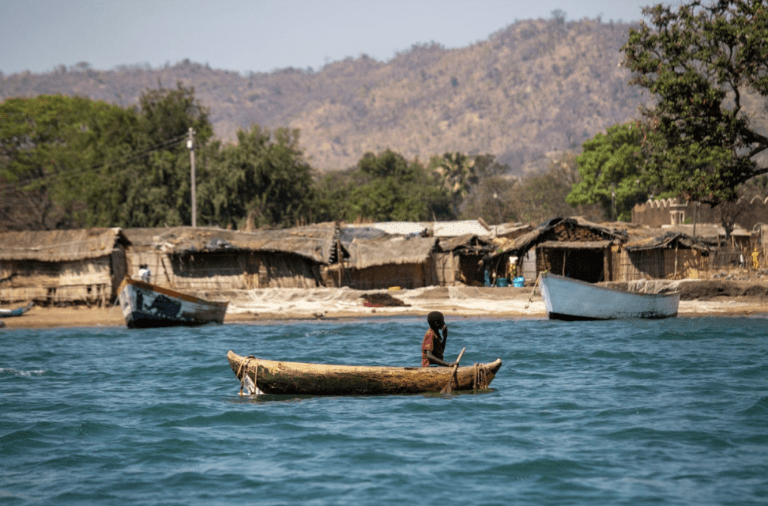Blog
Charting new waters: Transforming fisheries through digital innovation in Malawi

Earlier this month in Penang, Malaysia, delegates took part in the International Institute of Fisheries Economics and Trade (IIFET) 2024 conference. Under the theme, "Aquatic Food Systems in the Blue Economy," the gathering focused on the intersection of fisheries and aquaculture economics and trade, with major global challenges being faced today such as food systems sustainability, rising economic and social inequality, the climate crisis and fallout from and possible future pandemics. A particular highlight from IIFET was the acknowledgment that these are all pertinent in shaping a resilient blue economy that delivers on its promise for a healthy planet and shared prosperity.
With support from the USAID-funded Restoring Fisheries for Sustainable Livelihoods In Lake Malawi (REFRESH) project, Dr. Dick Kachilonda and I had the privilege to represent our efforts in Malawi. Our presentation highlighted the transformative impact of digital technologies on fisheries management. By digitizing catch and data collection systems, we have significantly enhanced data accuracy and accessibility, thereby facilitating evidence-based decision-making crucial for sustainable fisheries practices. We also presented lessons from our decade long experience in implementing participatory fisheries management in Malawi.
Reeling in results: Digitizing collaboration for Malawi's fisheries
A significant aspect of our presentation focused on Dr. Kachilonda's decade-long experience in participatory fisheries management. We highlighted how digital systems are revolutionizing fisheries management in Malawi by providing timely and accessible fisheries statistics to managers, local associations and policymakers. This digital transformation has significantly improved data accuracy and accessibility, empowering stakeholders with reliable information to support sustainable practices. Dr. Kachilonda also showcased a decade of achievements in participatory fisheries management, emphasizing collaborative efforts that have enhanced fisheries biodiversity and fostered socio-economic development within fishing communities. He demonstrated the effectiveness of Pact’s tools like the Community Performance Index (CPI) and rapid organizational capacity assessment (ROCA) in monitoring and improving local fisheries management practices.
Beyond our presentations, the conference provided a valuable platform for networking and collaboration. Engaging with experts in fisheries economics, trade and gender studies enriched our discussions and catalyzed new ideas for global fisheries sustainability initiatives.
Tide of triumph: Making waves in fisheries management
Attended by over 300 participants, the conference served as a platform for Pact to showcase its impactful work in Malawi, highlighting successes achieved through digital innovation and participatory fisheries management, while emphasizing the importance of collaborative efforts in addressing complex fisheries challenges.
As I reflect on our experience at IIFET 2024, I am inspired by the shared commitment of global fisheries stakeholders to pursue sustainable practices. I was particularly excited that our project’s approach in addressing the complex fisheries management challenges facing Lake Malawi resonated with the global thinking around fisheries management. As we move into the future, we remain dedicated to localizing the reach of digital solutions in fisheries management in Malawi and further strengthening participatory approaches to ensure enduring benefits for both ecosystems and communities.
Our participation at IIFET 2024 was not only a testament to the progress made in Malawi but also a call to action for continued innovation and collaboration in fisheries management in Africa and globally.
Together, we can build a future where responsible stewardship of inland fisheries resources ensures prosperity for generations of Malawians to come.